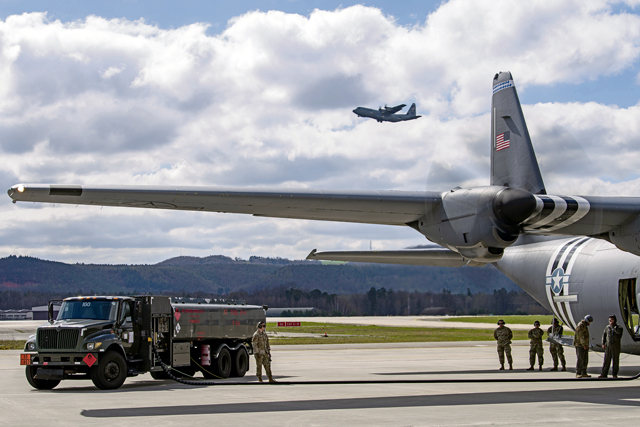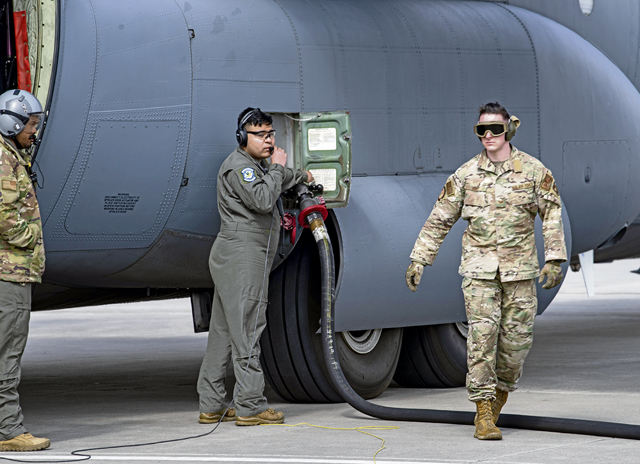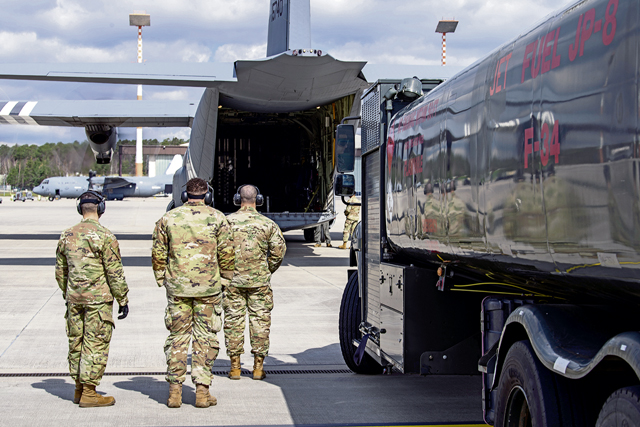
A wet-wing defuel operation is the transferring of fuel from an aircraft to a fuel truck while the aircraft engines are still running, making the process for refueling aircraft more efficient while in contested areas.
The 86th Logistics Readiness Squadron used their training to perform a wet-wing defuel operation April 4.
A wet-wing defuel removes the fuel from a C-130J Super Hercules aircraft and transfers it to an R-11 aircraft refueling truck while the engines are still running to decrease ground time.
The 86th LRS has hosted various training sessions in and out of the classroom to practice this operation, said U.S. Air Force Staff Sgt. Robert Veno, 86th LRS fuels equipment supervisor.
“We want to perfect the wet-wing defuel process so when we are in austere locations, and it’s only a couple of us out there, we know we are capable to execute the mission,” said Senior Airman Shawn Solorzano Ocasio, 86th LRS fuels distribution expeditor. “When I’m prepared, I feel I have an impact on the mission.”

During a regular defuel process, the defueling would begin after engines are turned off. Then, the engines would be turned back on again after the set amount of fuel is transferred, which uses additional time.
This is not always available in areas where it is difficult to get fuel to other aircrafts.
Thorough training for wet-wing defuel operations is absolutely necessary to ensure Airmen are prepared for potential risks, Veno said. The level of danger is heightened while working in close proximity to the high-speed propellers on C-130Js.
Veno added that fuel being present while hot engines run creates an increased risk for fire.
The 86th LRS intends to implement annual training to certify their Airmen to execute special fuel operations, like wet-wing defuels, in contested conditions.

“Phase one is in the classroom, looking over regulations, safety precautions, and layouts of the operation,” said Veno. “Phase two is hands-on with a static aircraft giving them the time to work without the tension of live engines. The final phase is a full wet-wing defuel with everything rolled into one cohesive operation. Additional night training would be needed to experience limited visibility situations.”
Knowledge and opportunities for practice help build confidence in the Airmen and are essential to enabling Airmen to have the ability to make snap decisions and ensure mission success when things go awry, Veno said.


